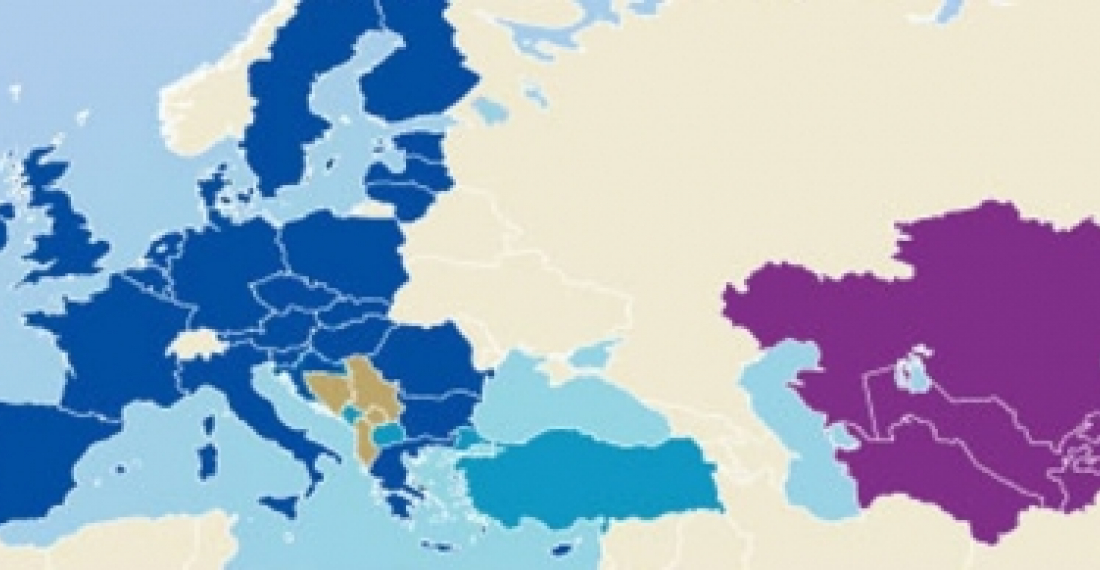The Foreign Affairs Council of the European Union, representing the 28 member states, has reviewed the EU's strategy towards Central Asia.
A Council statement said that "Considering Central Asia as a region of strategic importance, the European Union has committed to establish a strong, durable and stable relationship with the five Central Asian countries. Eight years after the adoption of the Central Asia Strategy, the Council welcomes the substantial progress achieved in developing the EU's relations with Kazakhstan, Kyrgyzstan, Tajikistan, Turkmenistan and Uzbekistan as well as with the Central Asian region as a whole. Highlighting the significant mutual interest in increased political and economic cooperation, the Council reaffirms the EU's commitment to a relationship based on the principles of responsibility and ownership, which is aimed at fostering the stable, secure and sustainable development of the region."
The statement added that the main objectives and priority areas of the 2007 EU Strategy for Central Asia remain pertinent. In implementing the Strategy the EU will take into account the lessons learnt and the changes in the region as well as the altering geopolitical situation around it. The Council calls for strengthening trade and energy links between the EU and Central Asian countries and reinforcing cooperation on security and stability, including sustainable management of natural resources.
The European Council emphasised the fundamental importance of democratisation, respect for human rights and the rule of law, and socio-economic development, as essential components of the EU strategy towards Central Asia. The Council also noted the importance of upgrading the current EU Liaison Office in Ashgabat to a full Delegation.
The current EU financial commitment for EU bilateral and regional cooperation with Central Asia for the programming period 2014-20 is 1.068 billion euros. This is an increase of 56% compared to the period 2007-2013.
source: commonspace.eu with the press service of the Council of the European Union







